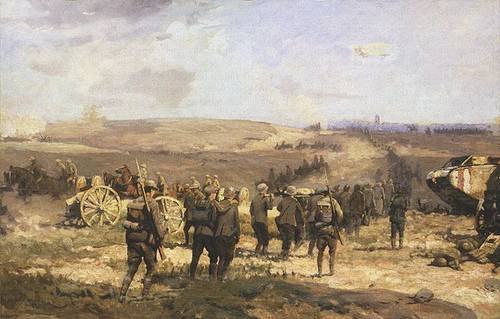
An Austrian Archduke, assaulted and assailed,
Broke Belgium’s barriers, by Britain bewailed,
Causing consternation, confused chaotic crises;
Diffusing destructive, death-dealing devices.
England engaged earnestly, eager every ear,
France fought furiously, forsaking foolish fear,
Great German garrisons grappled Gallic guard,
Hohenzollern Hussars hammered, heavy, hard.
Infantry, Imperial, Indian, Irish, intermingling,
Jackets jaunty, joking, jesting, jostling, jingling.
Kinetic, Kruppised Kaiser, kingdom’s killing knight,
Laid Louvain lamenting, London lacking light,
Mobilizing millions, marvellous mobility,
Numberless nonentities, numerous nobility.
Oligarchies olden opposed olive offering,
Prussia pressed Paris, Polish protection proffering,
Quaint Quebec quickly quartered quotidian quota,
Renascent Russia, resonant, reported regal rota.
Scotch soldiers, sterling, songs stalwart sung,
“Tipperary” thundered through titanic tongue.
United States urging unarmament, unwanted,
Visualized victory vociferously vaunted,
Wilson’s warnings wasted, world war wild,
Xenian Xanthochroi Xantippically X-iled.
Yorkshire’s young yeomen yelling youthfully,
“Zigzag Zeppelins, Zuyder Zee.”
— John R. Edwards



